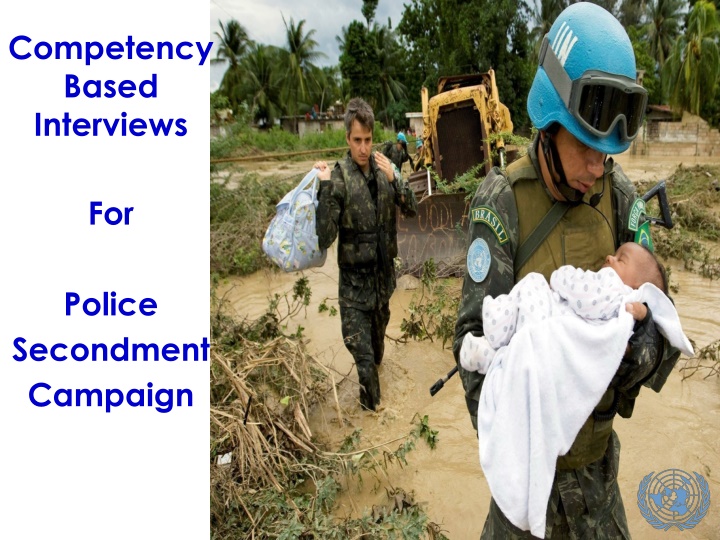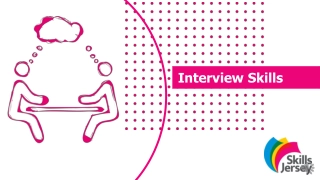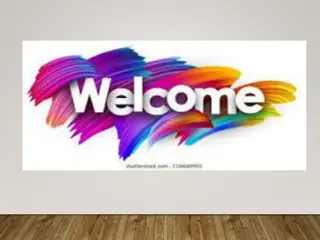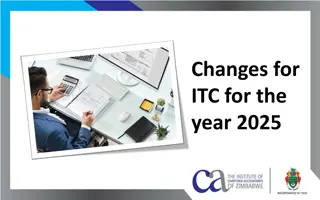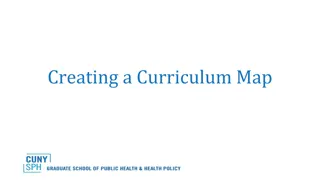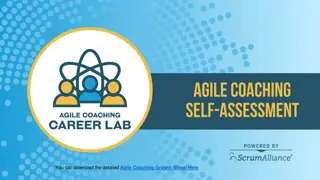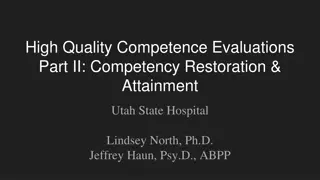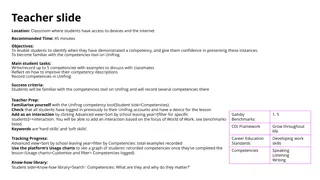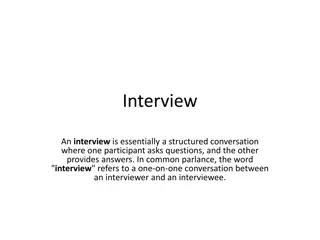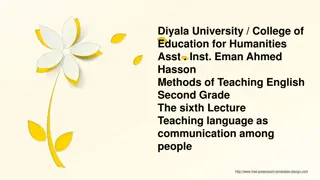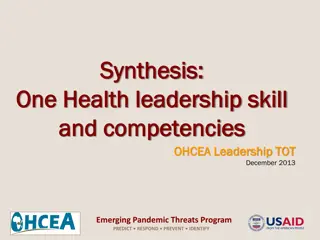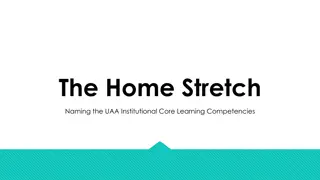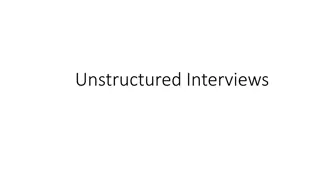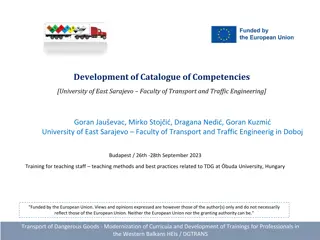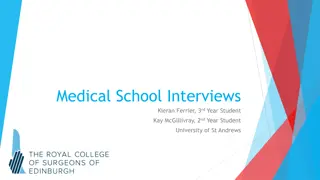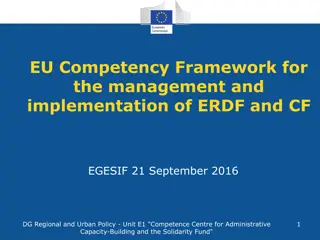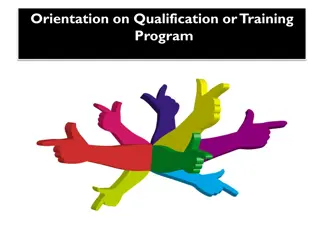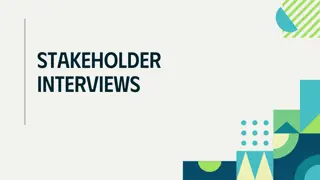Competency-Based Interviews: Values, Competencies, and Principles
Understanding the importance of values and competencies in competency-based interviews for police secondment campaigns. Explore the CAR(L) principle, preparing for interviews, and the significance of past experiences. Discover why competency-based interviews are crucial for assessing future capabilities.
Download Presentation

Please find below an Image/Link to download the presentation.
The content on the website is provided AS IS for your information and personal use only. It may not be sold, licensed, or shared on other websites without obtaining consent from the author.If you encounter any issues during the download, it is possible that the publisher has removed the file from their server.
You are allowed to download the files provided on this website for personal or commercial use, subject to the condition that they are used lawfully. All files are the property of their respective owners.
The content on the website is provided AS IS for your information and personal use only. It may not be sold, licensed, or shared on other websites without obtaining consent from the author.
E N D
Presentation Transcript
Competency Based Interviews For Police Secondment Campaign 1
Agenda Values and Competencies Why Competency-based Interview The CAR(L) Principle How to Prepare for an Interview (Do s and Don ts) Exercises (Teamwork, Planning & Organization) Additional resources
Values and Competencies Values: o Shared principles and beliefs that underpin the organization s work and guide actions and behaviours of staff Competencies: o Skills, attributes and behaviours directly related to successful job performance 3
Values and Competencies (continued) Core Values Core Managerial Competencies Competencies o Communication o Teamwork o Planning and Organizing o Accountability o Creativity o Client Orientation o Commitment to Continuous Learning o Technological Awareness o Vision o Leadership o Empowering Others o Managing Performance o Building Trust o Judgement and Decision-making oIntegrity o Professionalism o Respect for Diversity 4
Why competency-based interviews (CBI)? Competencies are forward-looking; they describe skills and attributes that staff and managers need to build human capital and meet future challenges Competencies help organizations clarify expectations and define future development needs CBI questions ask about past professional experiences that can demonstrate that the applicant is competent The theory is that if you can demonstrate that you have done it in the past or have learned from the past, chances are that you will be able to do it in the future When assessing the applicants responses, panels will ascertain the depth and complexity of the responses given by applicants CBI is sometimes referred to as behavioral or situational interviewing 5
CAR (L) Principle Context: o You will be expected to give an overview of the situation: what the situation was about, how you first got involved, what were the key events and the time frame Actions o You will be expected to cover significant events, specific instances, that were clearly attributable to you rather than the team Results o What was the outcome, impact or results of your actions: You may be asked questions such as how did it turn out ? What was the final result? Learning o What did you learn from this experience? 6
Prepare for the interview Preparing for the interview: Learn as much as you can about the organization (mandate, publications, organigrame, strategic directions, news, etc.) understand the position and look at the competencies in the job opening review the application/PHP and select real examples matching their accomplishments to the competencies (i.e. how did they work in a team, solve conflict, mobilize resources, etc.) Practice, practice, practice beforehand (refer to your application and the requirements of the job opening) 7
During the interview: do If invited to an interview: face-to face, body language, few suggestions: Dry firm hand shake at beginning and end of interview, maintain eye contact, replies should be concise and to the point and overall just try to look and feel relaxed. telephone (or Skype/Teams) make sure you are in a private location and equipment is working In both cases: Listen carefully to the complete question. Ask for clarification if a question is not clear Provide concrete examples that show you were able to handle a situation and/or learned from it 8
During the interview: do not During the interviews candidates should not: Answer in the hypothetical way Talk about we , rather talk in the I Espouse theories or values ( waffling on ) Make blanket generalizations or statements about the future Interrupt the panel 9
Sample questions on Teamwork Describe to us a successful teamwork work experience What was the situation? What was your role? What made the team successful? How did you handle any disagreements within the team? What were the results? What did you learn from the experience? If you had to do it again what would you do differently? o o o o o o 10
Sample questions on Planning and Organizing Tell us about a time you had to organize or plan a major event What was the nature of the event? What was your role? How did you plan and organize the different actions to carry out? How did the event turn out? Reflecting back, what did you learn from the experience? If you had to do it again what would you do differently? o o o o o 11
Sample questions on Planning and Organizing (continued) Tell us about a time where you had a number of demands being made on you at the same time? How did you handle it? What was the situation? What was your role? How did you plan and organize the different actions to carry out? What were the results? What did you learn from the experience? If you had to do it again what would you do differently? o o o o o 12
Additional resources https://careers.un.org/lbw/home.aspx?viewtype=AYI 13
